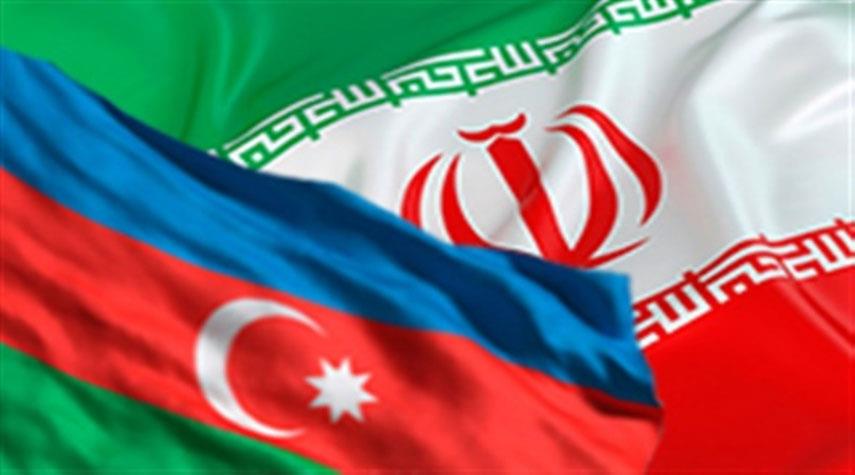Escalating tensions between Iran and Azerbaijan is not news, but what is novel to current circumstances are recent developments in regional and international contexts. The Russian invasion in Ukraine has spiked fears in Iran concerning Israel’s attempt to respond to its presence in Syria by strengthening its influence in Azerbaijan. Moreover, the current escalation between Azerbaijan and Israel is linked to the Saudi-Iran agreement concluded in Beijing, and the Iranian regime’s success in overcoming popular protests.
Watan Amrouz (Homeland of Amrouz) newspaper (Homeland Today): Aliyev regime statements against Iran after the visit of the Azerbaijani Foreign Minister to Israel…[something] for Israel

Although tension is a major feature of Iran’s relations with Azerbaijan, it has presently reached an unprecedented level since the beginning of this year. On April 6, the Azerbaijani authorities decided to expel four diplomats from the Iranian Embassy in Baku, stating that their activities were incommensurate with their diplomatic status. Indeed, Azerbaijan has accused Iran of being involved in an attempted coup d ‘état inside Azerbaijan following the arrest of a cell of six Azerbaijanis. It also accuses Iran of the attempted assassination of an anti-Iranian political Azerbaijani lawmaker. Conversely, the Azerbaijani Embassy in Tehran was previously raided by an armed person on 27 January, killing the embassy’s security director, following which Baku accused Tehran of overlooking the imposition of heavy security around the embassy.
Jewan (Youth) newspaper: What’s behind the questionable political assassination in Baku? Why does Azerbaijan insist on destroying its relations with Iran?
Multiple Incentives
Historic differences and ethnic tangles between Iran and Azerbaijan have been a major cause of strained relations, with tensions expanding after the conflict between Azerbaijan and Armenia over the Nagorny Karabagh region, that tipped the balance of power in Azerbaijan’s favor with the direct assistance of Turkey and Israel. However, these differences do not fully explain the renewed escalation of tension between the two countries. Rather, regional and international developments have recently exacerbated the situation as follows:
- Iranian fears of reproducing the situation Ukraine: Iran fears hostile US and Israel attempts to reproduce the Ukrainian situation in the region. Western powers supporting Azerbaijan in the same way they supported Ukraine against Russia, is a direct threat to Iran’s security and stability. It also exerts strong pressures on Iran to use the military option, which Iran is reluctant to resort to, preferring to push back through waging a proxy war against its opponents.
This is undoubtedly due to the ethnic tangles between the two parties, whereby Azerbaijani nationalism exists simultaneously in Azerbaijan and Iran. Thus, forces supporting escalation between the two countries may seek to dismantle the Iranian government by destabilizing the sensitive ethnic balances within it, especially since different Iranian nationalities live on its borders with other states.
- Israel’s attempt to counter Iranian presence in Syria: In Iran’s view, Israel’s desire to strengthen its presence in Azerbaijan may be to counter Iran’s presence in Syria. In other words, Israel continues to be concerned about Iran’s attempts to expand its influence in Syria and near the border with Israel, directly threatening its security. Hence, by expanding its influence in Azerbaijan, Israel is effectuating a matching threat to Iran’s security as well.
It is noteworthy that one of the main catalysts to the current tension was the opening of the Azerbaijani Embassy in Tel Aviv, on 29 March, during which Israeli Foreign Minister Eli Cohen made statements that provoked hard reactions by Tehran. Cohen stated that he spoke with Foreign Minister Jihun Bermov about the formation of a united front against Iran, and the promotion of cooperation in the fields of economy, security, energy, and innovation. He also noted that he would soon visit Baku with a large economic delegation.
- Responding to Saudi-Iran rapprochement: Tehran’s concern over the significant rapprochement between Azerbaijan and Israel, runs parallel to concerns by Israel and the US regarding Iran-Saudi rapprochement, which began with the signing of an agreement to resume diplomatic relations in China on March 10. Meetings continued between Saudi and Iranian Foreign Ministers in Beijing on April 6.
For Washington and Tel Aviv, this convergence undermines the strategy of imposing severe sanctions on Iran, and does not align with the US and Israel’s nuclear and regional aspirations. Indeed, the Saudi-Iran agreement was concluded before the nuclear negotiations between Iran and international powers, whilst Iran continues to develop its nuclear program, approaching its goal of 83.7% uranium enrichment, which expands its capabilities towards the stage where it can produce a nuclear bomb.
The US and Israel have therefore resorted to various options to respond Saudi-Iran rapprochement and the continuation of Iran’s nuclear program. This includes statements regarding the formation of a united front with Azerbaijan against Iran. And according to Iran, on April 8, the US sent the nuclear-powered Florida submarine carrying 154 Tomahawk missiles to the Middle East. Although this move strongly indicates to Iran that Washington will not condone its attempts to target the US military in Syria, it is also a message to Saudi Arabia and China that Washington is a force in the region, and that security and political arrangements that could affect the region’s strategic balances cannot be formulated in its absence.
- Iran’s success in overcoming internal crisis: Iran remains keen to link recent developments on the regional scene with the regime’s success in overcoming popular protests since mid-September. Indeed, Iran believes that one of the reasons for signing the agreement with Saudi Arabia under the auspices of Beijing is Riyadh’s realization that the Faqih regime was able to contain the rebellious protests that lasted for more than five months.
In this context, the regime adopts the same approach in dealing with the rapprochement between Israel and Azerbaijan. In its view, Israel was quick to take new steps to promote this rapprochement, after realizing that there are no internal threats to the Faqih regime, and that, according to the Iran’s view, it was necessary to operationalize the other options available rather than relying on a policy of internal change, which had so far failed.
Continuous escalation
Recent developments between Iran and Azerbaijan indicate that escalation will continue in the near future. Doubts are growing, and disputes are worsening, as are developments in the regional arena. Hence, it is possible that the current escalation goes is more complex than simple mutual diplomatic steps, given the motivations and pressures on the two states to assume the upper hand in this ongoing rivalry.


